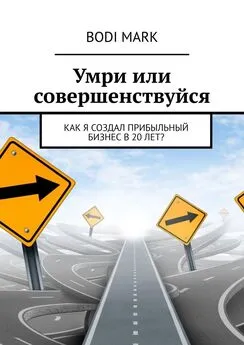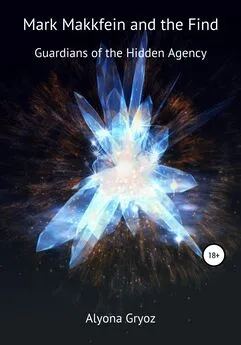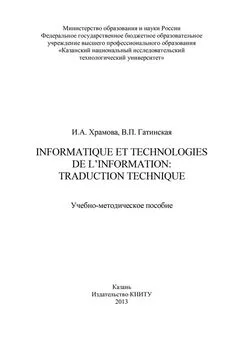Mark Mills - The Information Officer
- Название:The Information Officer
- Автор:
- Жанр:
- Издательство:неизвестно
- Год:неизвестен
- ISBN:нет данных
- Рейтинг:
- Избранное:Добавить в избранное
-
Отзывы:
-
Ваша оценка:
Mark Mills - The Information Officer краткое содержание
The Information Officer - читать онлайн бесплатно ознакомительный отрывок
Интервал:
Закладка:
Sometimes Zammit wore his uniform, sometimes a suit. He never went into battle in his shirtsleeves. Today he was wearing a black suit and a home guard armband, and he prowled around his roof terrace like some dark ghost, eyes on the skies, apparently oblivious to the large crowd gathered on the neighboring rooftop. Instead of his usual pistol, he carried a rifle in his hand.
“Is that a Lee-Enfield?” asked Freddie.
“Might just as well be a goddamn broomstick for all the good it’s going to do him,” replied Elliott.
The last of the bombers were making their runs now, dropping to four or five thousand feet before unloading over the airfields. Resistance was minimal, and they climbed safely away with a covey of fighters assigned to see them safely home. High above, all around, 109s blackened the sky like bees, keeping a wary guard. Their job done, the island’s artillery all but spent, they would soon descend and begin picking over the carcass, making low-level attacks on targets of opportunity. If there was a time to be scared, now was it. Even a residential district like Sliema was fair game.
Knowing this, a few people started to drift below. Most stood their ground, though, eager to see how things would play out. Freddie made a drinks run downstairs. By the time he returned with their glasses, the dockyards in Grand Harbour were under attack, the enemy fighters rising into view behind Valetta like rocketing pheasants as they pulled up out of their dives. They couldn’t hope to inflict much real damage with their cannon and machine-gun fire, but they were making a point. Max had heard from Ralph that a 109 had even made a touch-and-go landing at Ta’ Qali the other day, rubbing their noses in it.
Today, pleasingly, this arrogance came at a price. A 109 banking over Fort Saint Elmo appeared to stagger, then its starboard wing dipped sharply and it spun away. There was no question of the pilot baling out at that height, and the aircraft hit the water, throwing up a white feather of spume near the harbor entrance.
“Welcome to Malta, you sonofabitch,” said Elliott darkly, as the cheers resounded around them.
Moments later, a couple of fighters swooped down onto Marsamxett Harbour from the direction of Floriana, flying tight down on the water, setting themselves for a strafing run at the submarine base on Manoel Island. There were no subs to be seen; they had recently taken to sitting out the daylight hours on the harbor bottom.
“Macchis,” said one of the young pilots.
He was right, they were Italian planes, blue Macchi 202s. If there had been any doubt, the showman-like flourish with which they rolled away after releasing a couple of savage bursts of cannon fire settled the question of their nationality. The Italians were known, and mocked, for their aerobatic flair. Both aircraft made a second pass, their guns churning up the water in neat straight lines as they bore down on the base. They pulled away in a climbing turn to the left, making off to the north, skimming over the stepped rooftops of Sliema.
Their course brought them straight toward Villa Marija, the roar of their engines building quickly to a painful pitch, almost deafening, but not so loud that it drowned out the report of the first rifle shot. Or the second.
Max turned in time to see Vitorin Zammit fire off his third shot, in time to see a portion of the lead Macchi’s engine cowling fall away.
“My God, I think he hit it!” someone called.
Old Zammit had not only hit it, he had actually done some damage. The Macchi’s engine coughed, clearing its throat, then coughed again, and again, misfiring badly now, a ribbon of black smoke snaking out behind it as it climbed toward Saint Julian’s.
“Well, holy shit,” said Elliott.
The trickle of smoke soon became a raging torrent, and the Macchi started to lose height, falling well behind its companion.
“Is it possible?” Freddie asked incredulously.
“Oh yes,” replied Max. A number of enemy fighters had been brought down over the airfields by rifle fire since the long-suffering ground crews had been issued with Lee-Enfields—a gesture intended to boost their morale. No one had expected them to actually hit anything.
It came to Max quite suddenly what he had to do. He glanced over at Vitorin Zammit, who was staring in dumb disbelief at his handiwork. Then he turned and took Pemberton by the arm, leading him off through the crowd.
“Where are we going?” asked the Information Office’s newest recruit.
“To work.”

HE LAY STRETCHED OUT ON THE MATTRESS, NAKED, staring at the ceiling and the dancing shadows thrown by the small pepper-tin lamp.
He raised his arm and examined it in the flickering light, flexing his elbow, his wrist, his fingers, enjoying the silent articulation of the joints, the play of muscle and sinew beneath the skin.
He was proud of his hands. Men didn’t notice hands. Women did. His mother had. She had always praised him for his hands. Then again, kind words had come easily to her, maybe too easily for the compliments to have had any real value. She had scattered them about her like a farmer spreading seed from a sack.
He saw her now as a young woman: the blue of her wide-set eyes; the arched eyebrows, dark and dense, which she’d refused to pluck as other women did because Father had liked them just the way they were. Or so he’d said.
My, you’re looking handsome today .
I think that’s the best I’ve ever heard you play the piano .
The best day of my life? When I gave birth to you .
You’re the best boy in the world .
She’d come from parents with low intellectual horizons, and she’d used words such as “best” a lot.
Maybe that’s what lay at the heart of everything. She had never felt worthy of the world in which she’d found herself, not worthy of the man who had taken her by the hand and led her into Eden. See all this? This is my world, but now it is yours too .
But Eden didn’t come cheap—she must have learned that early on—and she had chosen to repay cruelty with kindness. She was known for her kindness. It was what defined her in the eyes of others. No one was unworthy of her selfless ministrations.
He suspected now that some baser urge had lain behind her behavior: an instinct for survival. How could her husband possibly harm such a kind and decent person, such a good wife?
It hadn’t worked, but she had kept the faith. It was hard to respect her for it, but at least it had shown a certain determination.
You’re the best boy in the world .
He saw her now, ruffling his hair, smiling warmly down at him, her prominent incisors, the small white scar on her lower lip from the time Father had struck her with a shoe. And he saw what she was doing: one person looking to provide the love of two. The intentions had been good, if ultimately counterproductive. The more she had smothered him with maternal affection, the more Father had felt the need to counteract her “damned pampering” of him.
It was strange that she had never stopped heaping praise upon all and sundry, even after the accident, when there was no longer any need to do so. He also found it strange that she had never taken tweezers to those unruly eyebrows when she must surely have wanted to, when at last she could.
That’s what annoyed him most, he realized—that even after Father was gone, he had managed to live on in her.
He lowered his arm to the mattress and smiled at this thought, a smile of pleasant surprise. When was the last time he had cared enough about anything to be annoyed by it?
It made him feel almost human.
DAY TWO

FREDDIE WAS ALMOST AN HOUR LATE FOR THEIR MEETING at the mortuary. When he finally appeared, reeking of iodine, from the bowels of the hospital building, he seemed surprised to find Max still waiting for him.
“I thought you’d be gone.”
“I heard what happened—of course I waited.”
“Yes, a nasty business.”
It certainly was. A passing orderly had explained the situation to Max. A wayward bomb had fallen well short of the dockyards during the early-morning raid and exploded at the entrance to a shelter in Marsa. Everyone had been safely inside by then, but it would have been far better for all of them if they’d stayed at home. The steel doors of the shelter had been blown in, and the Maltese not torn apart by the hail of metal had found themselves consumed by the ensuing fireball.
Freddie had obviously made an effort to scrub up after his labors, but had missed a couple of spots of blood on his cheek. Max tried his best to ignore them.
“I don’t know how you do it.”
“It’s what I trained for.” Freddie shrugged.
“Really? This?”
Freddie smiled weakly. “Well, not quite this.” He fished a lighter and a packet of Craven “A”s from his pocket. “Sometimes I wish they’d just invade. Then it would all stop.”
“If it stops here, it just gets worse in a lot of other places.”
“I suppose.”
They all knew the reasoning; there was no point in going over it again.
“Do you want to get some air?” asked Max.
“No. Let’s get it over with.” Freddie held out the packet of cigarettes.
Max raised his hand, declining the offer. “I’ve just put one out.”
“Take one,” said Freddie. “For the smell.”
Max had been in hospitals before, but only ever to visit wounded friends. Those airy, spotless wards with their ordered rows of beds and their gruff thick-ankled nurses had nothing in common with the mortuary of the Central Hospital.
The mortuary occupied a run of vast and gloomy ground-floor rooms. The windows were partially shuttered, allowing in just enough light to make identification possible. Corpses carpeted the tiled floors. Some of the bodies were covered, others not, and some weren’t bodies at all.
“We’re out of blankets, I’m afraid,” said Freddie as they picked their way through the first room. He might just as well have been apologizing to a house guest, and his matter-of-factness went some way toward calming Max’s nerves. An orderly in what must once have been a white coat was mopping the floor. He was young—too young, you couldn’t help thinking, to be exposed to such sights. His tin pail screeched in protest as he maneuvered it around the floor with the mop. It was the only sound. The stench was indescribable.
The second room was almost as large as the first, and the thing Max noticed immediately was a pile of limbs stacked up in the corner like so much firewood. The next thing he noticed was a Maltese man emptying the contents of his stomach onto the floor. He was being held around the shoulders by a ragged old fellow in a threadbare suit emitting deep and sonorous sobs. They had evidently just identified the body at their feet, and an orderly looked on awkwardly, clipboard poised to register the details.
It was a pathetic sight, upsetting—two broken men bent over a broken body—and Max was relieved when Freddie led him through double swing-doors out of the charnel house and into a long corridor.
“There are so many.”
“It’s been a bad week. And coffins are hard to come by, so they lie here for days, backing up.”
“Some of them are, well, remarkably intact.”
“Blast victims, snuffed out by the shock wave. Although it often scalps them.”
Their destination was a small room at the far end of the corridor. Aside from a wooden desk in the corner, the room was empty. Max’s relief was short-lived, though; he hadn’t spotted the gurney pushed up against the wall behind the door. A body lay on it—a woman, judging from the bare feet poking out from beneath the piece of tarpaulin that covered her.
Читать дальшеИнтервал:
Закладка:
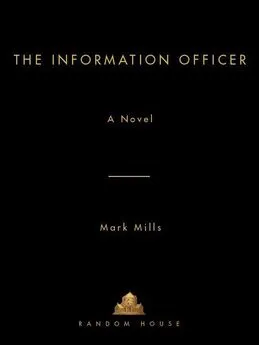

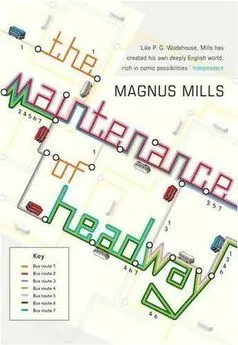

![Джеймс Купер - Пионеры, или У истоков Саскуиханны [The Pioneers, or The sources of the Susquehannah]](/books/1066142/dzhejms-kuper-pionery-ili-u-istokov-saskuihanny-t.webp)
